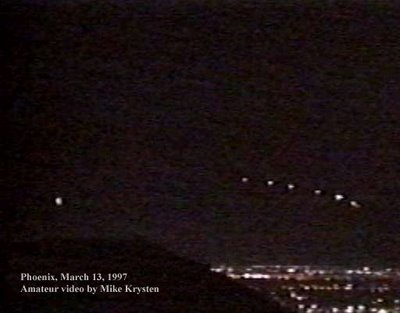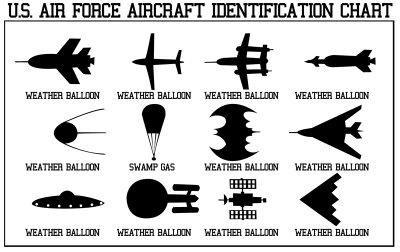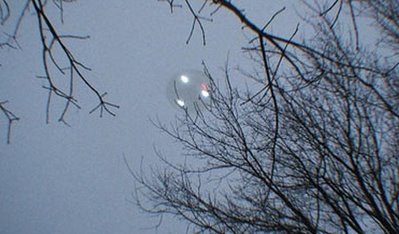Disclosure is needed.
 More and more people are waking up to the fact that we are not alone in the universe. Personally, I think a lot of problems on this planet could be solved if we just recognized that there is other (more) intelligent life out there. For one thing, the knowledge of extra-terrestrial life would lead us to some feelings of embarrassment about the stupid shit we’re doing to our planet and each other. I’m thinking of war, environmental degradation, political arrogance and conspicuous consumption, amongst many other problems.
More and more people are waking up to the fact that we are not alone in the universe. Personally, I think a lot of problems on this planet could be solved if we just recognized that there is other (more) intelligent life out there. For one thing, the knowledge of extra-terrestrial life would lead us to some feelings of embarrassment about the stupid shit we’re doing to our planet and each other. I’m thinking of war, environmental degradation, political arrogance and conspicuous consumption, amongst many other problems.
I mean, it’s humiliating enough that the Bush/Cheney cabal is bleeding liberty away (somebody make a photoshopped pic of Bush waterboarding Lady Liberty please), but if we knew aliens were watching the whole thing unfold maybe we’d say, “You know, maybe we should ask the aliens for help. Maybe they know what to do about the dichotomy between security and liberty.” Maybe that’s why they’re being kept underwraps. Maybe the powers that be don’t like the message they bring.
It’s important to remember that not all high-ranking officials want to be a party to this coverup, though. One such group is putting their reputations on the line to call for disclosure and a real investigation.
An international panel of two dozen former pilots and government officials called on the U.S. government on Monday to reopen its generation-old UFO investigation as a matter of safety and security given continuing reports about flying discs, glowing spheres and other strange sightings.
“Especially after the attacks of 9/11, it is no longer satisfactory to ignore radar returns … which cannot be associated with performances of existing aircraft and helicopters,” they said in a statement released at a news conference.
The panelists from seven countries, including former senior military officers, said they had each seen a UFO or conducted an official investigation into UFO phenomena.
The subject of UFOs grabbed the spotlight in the U.S. presidential race last month when [Dennis] Kucinich, a member of Congress from Ohio, said during a televised debate with other Democratic candidates that he had seen one.
Former presidents Ronald Reagan and Jimmy Carter are both reported to have claimed UFO sightings.
Everybody in this group probably already knows that we’ve made contact. It’s just less nutjob-y to call for an investigation. As for me, I’ve never seen a UFO, never met an alien, and never had anything shoved up my ass. I can just tell. You know what I mean? Probably not, so let me explain: I can tell not only that ETs exists, but that the government knows about them and has in fact made contact with them, simply by monitoring the government’s behavior.
It’s simple: the U.S. government has approached UFO investigation in a secretive, yet lackadaisical manner. The secretive part makes sense, since, under the respective political milieus of the last 60 years, the UFOs could be (and most likely were, from the U.S. government’s perspective) threats from our Communist or Terrorist adversaries. So it makes perfect sense to be reticent about speaking to the public on the matter. However, the lazy, half-assed attitude the government took towards actually investigating these phenomenon belies their obsession with secrecy. In fact, many UFO sighters have noted that the government was more concerned with shutting them up than actually finding out what happened.
This leaves us with two possibilities. One is the ET theory, the other is the “secret project theory.” This theory states that the government has been behind the UFOs from the beginning. This theory has strong supporting circumstantial evidence since the government has been known to work on secret projects (from the Manhatten Project to the stealth bomber) and the military had to explore any option to get a leg up on the Soviets.

However, this theory has several holes. One, the technology is far beyond what we have even today. And this technology would have to have been available in 1947. Another problem with the secret project theory is that the UFOs seem to want to be discovered. What else can explain The Phoenix Lights? Why would the government make vastly more dull coverup work for themselves when they could test the secret craft over deserted land instead of a major metropolitan area, home to 1.5 million people? It just doesn’t make sense unless you start using conspiratorial contortions far more convoluted than the idea that there’s life out there. I heard a good one today: Somebody suggested the Phoenix Lights were a secret government project involving nuclear-powered stealth blimps!
Oh, I should note that former Arizona governor Fife Symington is a member of the group agitating for disclosure I mentioned earlier. He had this to say about the event:
I’m a pilot and I know just about every machine that flies. It was bigger than anything that I’ve ever seen. It remains a great mystery. Other people saw it, responsible people. I don’t know why people would ridicule it.
…
It was enormous and inexplicable. Who knows where it came from? A lot of people saw it, and I saw it too. It was dramatic. And it couldn’t have been flares because it was too symmetrical. It had a geometric outline, a constant shape.
“I don’t know why people would ridicule it.”
I do. Ridicule is a very effective weapon if your aim is to affect a coverup. Heck, ridicule is probably your best bet, besides threats. If you organize an effective campaign of ridicule then the victim spends more time trying to defend his reputation than talking about what he saw, and then it has the dual purpose of preemptively ridiculing all other similar claims by association.
It must be stated clearly: Ridicule is not a logical argument. It is an ad hominem attack and is thus a fallacious argument. Attack arguments, not people. Now, anybody who disagrees with my assessment is free to say so, but simply ridiculing me is not an effective argument. It might be effective in that it makes people agree with you (for fear of being ridiculed if they don’t), but it does nothing to bolster your argument. In fact, it makes you look like you don’t know what you’re talking about.

I wish I didn’t need to make the above statement, but I’ve been on the internet far too long to believe otherwise.
Anyway, I want to address the idea that the alien life is highly improbable. For one thing, so is our very existence, but here we are. For another, there are billions upon billions of stars
out there. We’re finding extrasolar planets at an amazing rate. It’s not unfair to say the universe is probably swarming with planets, many of them habitable by carbon-based lifeforms. But we must already remember that there’s no guarantee that extra-terrestrial life would be anything like us.
I think the whole question is summed up nicely by this excellent comment on digg (yes, I’m surprised too):
Believing alien life exists does not necessarily require seeing, and it certainly doesn’t require faith. It’s just a matter of deduction, probability, and simple reasoning.
Think for a moment of the things you accept as true without the benefit of having seen them with your own eyes. You very likely accept the fact that not all life on Earth has been discovered. Although you have no tangible proof of that, you have an intuitive understanding of mathematical probability and an idea of what the limitations on exploration are. You probably accept as true that there are more stars in the Universe than there are grains of sand on Earth, but in reality, no one’s ever really counted them. We see far off galaxies, most too far for our satellites to define, and we just assume they’re composed of hundreds of billions of stars, just like our Milky Way is (never counted those either). It’s a sound assumption, for sure. But an assumption nonetheless. What I’m trying to convince you of is that mathematical probability can be just as strong a proof as observation, which is itself limited by perception.
Now, what do we know about life that might help us get a better grasp on the alien question? Well, for starters, we know there’s life on Earth. We’re not exactly sure how it came about, but most of us are convinced it wasn’t by way of magic. We believe it had much, if not everything to do with the composition and solar proximity of our planet. We know that each Earthly life-form adapts to its respective environment, and we suspect they evolve in order to better compete with their rivals. We know our world has at times been uninhabited, inhabited, uninhabited, and inhabited again. We know there are great extinctions and new births. And we know, eventually, our planet will die.
There is not one single aspect of our planet, that makes life as we know it possible — i.e. vulcanism, atmosphere, water, carbon, etc. — that we have not yet detected on another planet. I’m talking about the basic ingredients, not the recipe. So we have to ask ourselves two questions: Are these the only ingredients to life?, and, is our particular recipe for life the only one capable of rising in a solar oven? If we presume both to be the case, we must then ask a third question: In a Universe of at least 100 billion galaxies (each with some 200 billion stars), and tens of trillions of planets; what are the likely odds of a recipe similar to ours repeating itself? For that matter, what are the odds of Venus’ recipe repeating itself? What are the odds for that of Jupiter, or that of Mars? How about Mercury? Is Neptune a one per galaxy anomaly? Are all planets in the Universe unique?
If you’re like me, you’re likely to conclude that the odds of our “recipe” type repeating itself are just as good as those of any other planet. But, whether or not alien life has come upon Earth can be debated. I’m personally convinced that it has. But I don’t believe that that topic can be seriously broached without more people first coming to terms with the all-too-probable existence of life outside our own world.
Indeed, the possibility of life outside our world is more than just a possibility. I would go so far as to say it’s probable. But some people seem oddly reluctant to acknowledge the logic above.
Remember when I said that the U.S. government has taken a lazy approach to investigating the UFO phenomenon?
The former governor says the incident remains unsolved, and deserves an official investigation. The U.S. government has never acknowledged that something was in the sky that night.
Former Phoenix city councilwoman Frances Barwood, now living in the Prescott area, was the only elected official to launch a public investigation in 1997, but she said people stonewalled her at every turn. Barwood spoke with more than 700 witnesses. “The government never interviewed even one,” she says.
That pretty much says it all.
 Filed Under :
Filed Under :  Apr.18,2008
Apr.18,2008
 This post currently has
one screech.
This post currently has
one screech.




Pretty well-reasoned, I thought. But I definitely want to challenge some of his assertions. Here is my response:
My apologies for the confusion over the water-diety. I didn’t make it clear, but I was referring to something similar to a water elemental — basically a spirit that is infused with one of the four elements (water is a compound, of course, but it’s also one of the classical elements), Fire, Earth, Air and Water (the Chinese add a 5th: Metal). It’s probably not a very good analogy since it’s completely hypothetical and imaginary, at least as far as science is concerned.
I grasp the stamp hobby analogy just fine. It’s a poor analogy, though, which you seem unable to grasp. Here’s why:
Collecting is an activity. Philately is a hobby. However, you could still be a philatelist and not actually collect anything. How? By knowing a heck of a lot about stamps, that’s how. Philately is the study of stamps, not the act of collecting them. You could be an expert in stamp lore without actually having a collection or wanting one.
Actually, maybe the analogy is not so poor, since once you learn how faulty it is you might be able to understand how atheism could be considered a religion. Of course, this does depend on semantics to an extent.
An extremely simple definition of religion is this: “A religion is a set of common beliefs and practices generally held by a group of people.” Boom. You hold beliefs in common with other atheists (you refuse to worship “known” gods) and your practices are also similar in that you refuse to attend worship services (I assume. Personally, I make exceptions for weddings and funerals, but I don’t “worship”). It may be negative, but that doesn’t mean you can’t group it under religion.
For example, you’ve already admitted that atheism is a philosophy. Would you also consider it a theological perception? Just because the content of your theological perception attacks the underlying structure of most other theologies and even theism itself, that does not stop it from being classified as some form of theological outlook. Do they study atheism in theology classes? In many cases, yes (there might be some bias in many of them, of course).
As for dogma, yes I consider the lack of belief in gods to be a dogma among atheists. If someone claimed to be atheist, but continually made shrines to Buddha would you consider him a “real” atheist?
To take it even further, have you ever heard “The first rule is that there are no rules.” Is that a rule? Sure seems like it to me, even though its singular act is to bar all other rules. It may be recursive, negative and contradictory… But it’s still a rule.
Also, if you knew more about theology you’d know that there are several religions that are nontheist. They generally don’t deny the existence of gods, they just aren’t concerned with them, and don’t take a stance on them either way. Confucianism and other eastern religions are a perfect example. For this reason, many people like to call them philosophies rather than faiths or religions, but this is another semantic argument, one that is caused by the overwhelming prevalence of Christianity in the weltanschauung of westerners.
If you consider ritual a necessary part of the definition of religion, consider the scientific method. It’s also a dogma of sorts, and it prescribes a methodology for discovering and verifying knowledge in such a way as it will be acceptable to others in the sci
entific community. In much the same way that a priest prepares to consecrate bread and wine, a dutiful scientist will prepare for an experiment by controlling for variables and making predictions (hypotheses) before the experiment-ritual itself is performed.
As for proceeding from the assumption of the null hypothesis, that’s your business. It’s certainly a good idea in science, but in matters of faith things are not so cut and dried.
Also, please note that I am not calling you a religious person by stating atheism could be considered a religion. I’m just pointing out that atheism is quite similar to other religions, and as it grows there is a risk that it could be seized and exploited by charlatans. I believe there was a South Park episode about this. I am also sure you would see through the bullshit and hopefully refrain from any atheistic fundamentalism, but just remember that there are a lot of stupid people out there. In fact, some people are dumb as fuck!
Even as I’m drawing religion and science together, surely you’ll concede there is much that separates them. The problem is that the scientific method is not known to work for the business of discovering gods. I believe Scott Adams once compared this folly to using a metal detector to check for unicorns in one’s sock drawer. The fact of the matter is, we haven’t discovered a “god” (definitively, based on the scientific method) so how can we say we’re using the best tools for the job?
Perhaps a new method is called for. Of course, if I knew that method I’d present you with solid proof of the existence of god(s). But you could easily reject it by saying my method does not adhere to the principles of the scientific method. But what if my method was better, at least for discovering and identifying divine beings?
A question to ponder: Have your placed your faith in the scientific method?